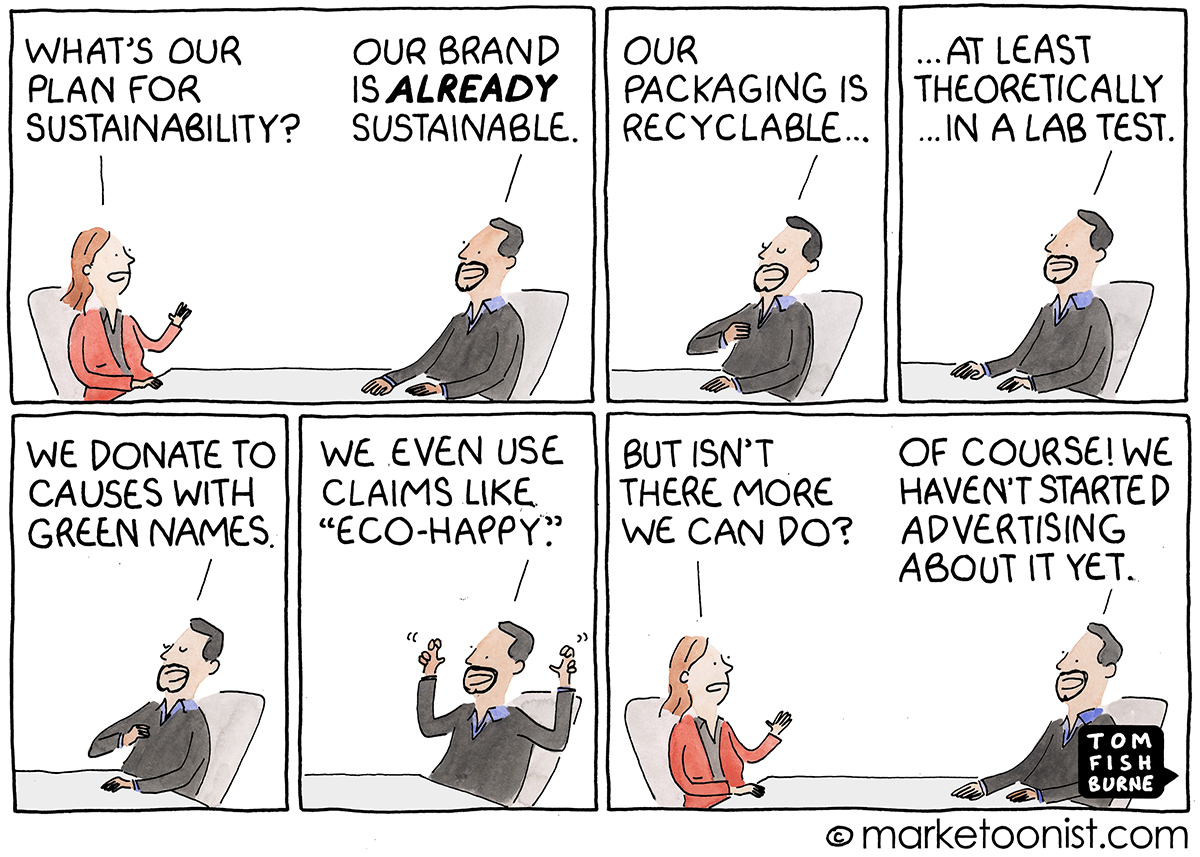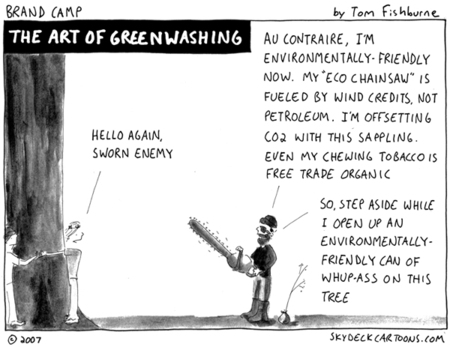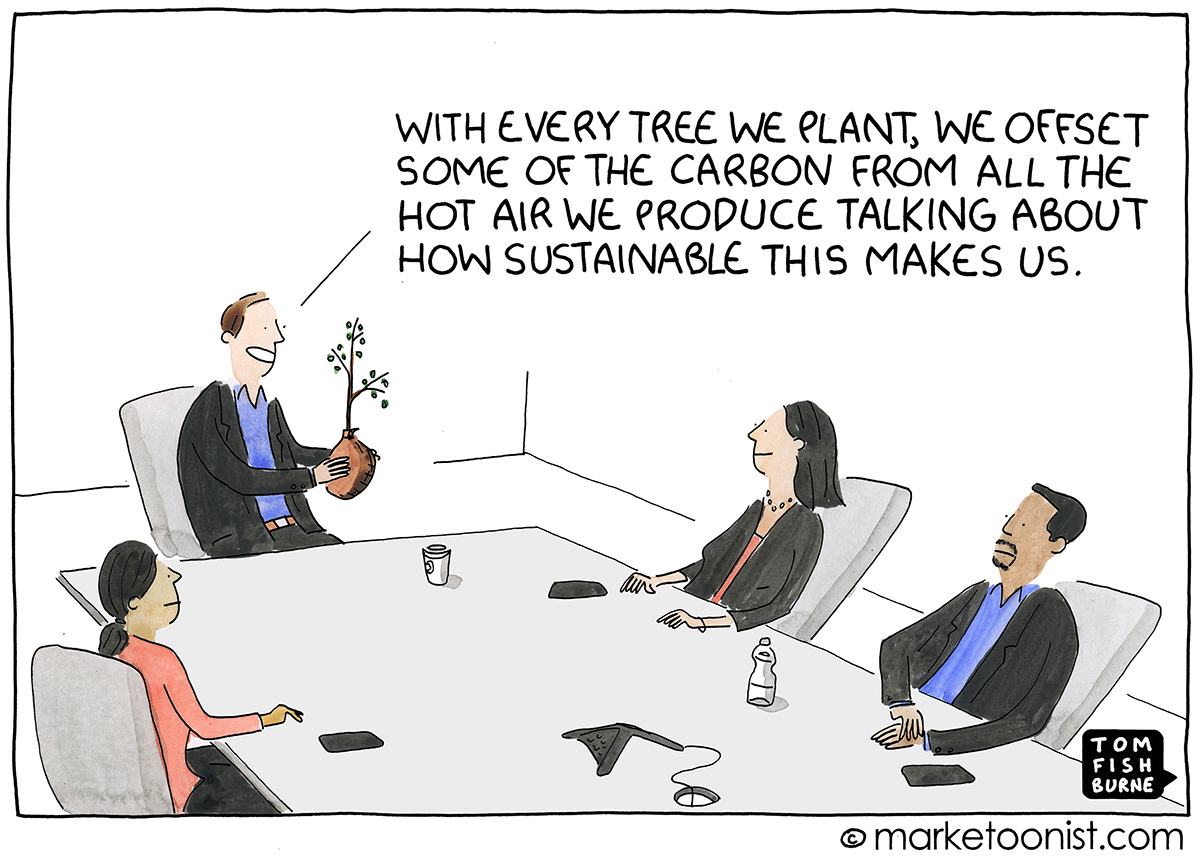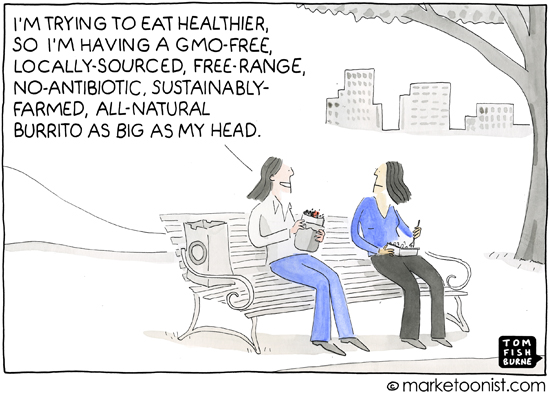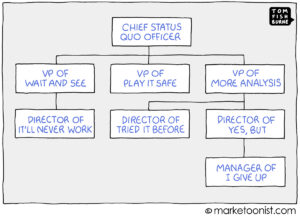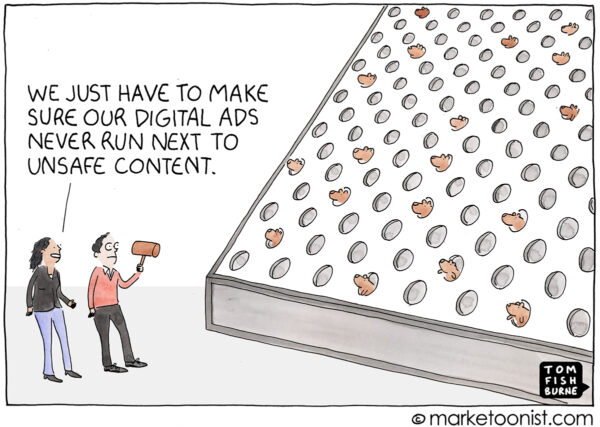EcoVeritas CEO David Harding-Brown recently observed:
“Sustainability as an umbrella term is becoming meaningless; a series of macro statements that consumers can no longer relate to or engage with.”
A consumer protection group called ICPEN recently found that 42% of sustainability claims made by brands online were “exaggerated, false, or deceptive.”
In 1983, an undergrad named Jay Westerveld coined the term “greenwashing” after seeing a “reuse your towel to help save the environment” card in a Fiji hotel that was simultaneously doing a construction expansion in a sensitive environmental area.
In the 40 years since, greenwashing as a practice has continued to muddy the whole conversation around sustainability and complicate the important role that brand owners can play.
There will always be tension between sustainability and marketing. I like this perspective from Harriet Vocking, chief brand officer at Eco-Age:
“Avoid hyperbole and focus on clarity. Don’t use the word ‘green’ unless you’re describing a colour. It’s a reputational risk to make claims you can’t substantiate…
“As a brand, you’re going to believe your own hype because you’re invested in the progress. Always have someone to ask ‘so what?’
“We shouldn’t be driving the narrative that a product or brand can be perfectly sustainable.”
Here are a few related cartoons I’ve drawn over the years:
